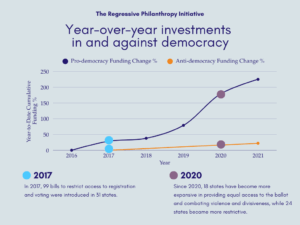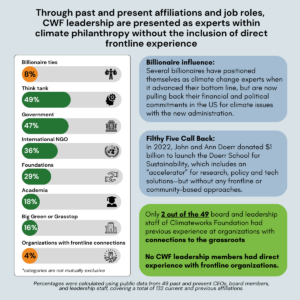Editor’s note: This post is part of an ongoing series of posts featuring NCRP nonprofit members.
 A risk-taking funder is a change-making funder. Those who help fledgling, but inventive, nonprofits get off the ground and into the air can markedly increase their social impact. Legal services in particular can be a strategic force multiplier for existing grantmaking programs.
A risk-taking funder is a change-making funder. Those who help fledgling, but inventive, nonprofits get off the ground and into the air can markedly increase their social impact. Legal services in particular can be a strategic force multiplier for existing grantmaking programs.
The upstart Open Door Legal is one such example. Founded five years ago, this southeast San Francisco organization has seen its annual budget increase from $33,000 to $1.2 million thanks to its innovative, results-oriented work on legal representation.
What makes them so remarkable? Open Door Legal is pioneering universal access to civil representation, whereby every person who needs a lawyer can have one – regardless of ability to pay. Why? Because they’re out to show that when everyone has access to the law, poverty can be dramatically reduced.
That’s a big claim. But Open Door Legal has the receipts. The organization has won $1.9 million in direct financial returns via court awards, canceled debt and settlements – 78 percent of which benefitted individuals earning less than $15,000 per year. More than 140 evictions have been prevented, clients have been transferred to new housing and barriers to housing have been removed. All the while, Open Door Legal has lost only 2.5 percent of its cases.
There are hundreds of other heroic organizations working on legal aid across the United States. Three things distinguish Open Door Legal from the rest.
- Universal access – They take on any kind of case: eviction, divorce, immigration or anything else, regardless of an individual’s ability to pay. In its short history, Open Door Legal has handled over 1,250 cases spread across 35 different areas of law.
- Comprehensive services – An integrated intake process lets clients simultaneously get legal representation and access to social services through data sharing and joint case management (with a client’s permission).
- Built to scale – A custom-built technology platform on Salesforce meticulously tracks all activities within the organization, allows for easy managing and onboarding of volunteers, and opens up a wealth of analytics to unearth ways to improve its work. This has been so successful, Salesforce invited Open Door Legal to present at its annual conference.
All told, according to their analysis, for every one dollar invested in Open Door Legal, the organization generates $21 in social returns.
There is a huge need for the services Open Door Legal provides. Nationally, 63 million Americans qualify for free civil legal assistance through federal government programs or grantees, but most Americans don’t perceive things like their wrongful eviction, domestic violence or severe debt as something a lawyer could help with, though study after study shows what a difference legal representation can make. As such, it’s distressing to see that more than half of those who do seek civil aid are turned away due to a lack of resources.
There are no public defenders for civil cases, so the United States relies almost exclusively on private attorneys to deliver justice. In Open Door Legal’s native California, the state spends only .01 percent of gross domestic product on legal aid.
Like nearly everything else in the private sector, the presence or absence of big payouts drives decision-making. In civil cases, damages are usually calculated based on lost income potential or value of property that’s destroyed. In practice, this means the poorer the client, the better their case has to be for someone to help them; for the wealthy, the quality of their case isn’t an issue as long as the check clears.
It is imperative that an Open Door Legal is available for every community. The organization wants to open five centers around San Francisco within the next three years to increase universal access to civil aid.
Funders interested in wealth inequality, immigration, women and children, or health should give Open Door Legal a strong look. Its impact is sizeable, measurable and inspirational. With innovative information technology and a broad range of service, the path to its expansion is relatively clear.
Legal services are not commonly considered a solution for these issue areas, and for some of Open Door Legal’s backers, the organization is the only one of its kind in their portfolios. Yet these grantmakers realize, or are coming to realize, how civil legal aid can improve outcomes and more efficiently deliver results.
There are new centers to build and people to help. Funders should consider providing general operating support for Open Door Legal, and clear out any internal roadblocks preventing legal services funding. In the fight for justice, philanthropy would be hard pressed to find a better ally.
Troy Price is NCRP’s membership and fundraising intern. Follow @NCRP on Twitter.





































































































































































































































































































































































































































